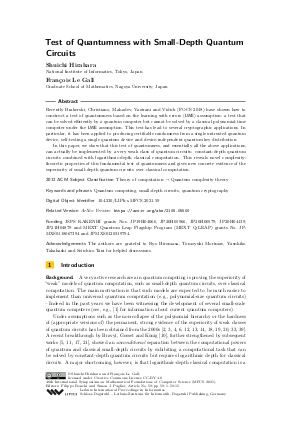LIPIcs.MFCS.2021.59.pdf
- Filesize: 0.69 MB
- 15 pages

 Creative Commons Attribution 4.0 International license
Creative Commons Attribution 4.0 International license



Feedback for Dagstuhl Publishing